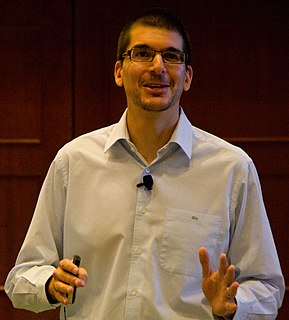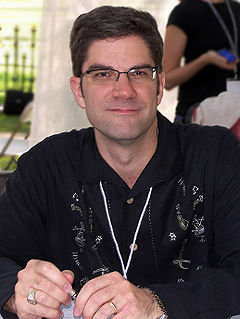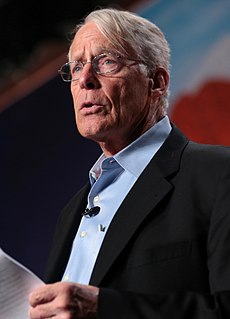A Quote by William Targ
The trouble with the publishing business is that too many people who have half a mind to write a book do so.
Related Quotes
You need to be naive enough to do things differently. No big publishing house would have allowed us to co-create a fully designed, four color business book in landscape format - because it was contrary to the publishing industry logic. However, we thought of Business Model Generation as a product, not just a book - similar to Apple products.
Writing has nothing to do with publishing. Nothing. People get totally confused about that. You write because you have to - you write because you can't not write. The rest is show-business. I can't state that too strongly. Just write - worry about the rest of it later, if you worry at all. What matters is what happens to you while you're writing the story, the poem, the play. The rest is show-business.
I had written a book. For various reasons, the publishing industry had decided that my book was going to be 'important.' The novel had taken me 12-and-a-half years to write, and after being with the book for so long, I had no real perspective on the merits or demerits of what I had written. I hoped it was good, but feared that it wasn't.
Say you're an American novelist, published by the largest publishing house in the world. Their goal is to make as much money from you as possible, to have as many people read your book in as many formats as possible. How can you hope to speak intimately to the numbers of people that represent the book sales required?
Keep your head down, avoid all the distractions of being a writer today?all the shifts in the business, all the drama, all the debating about where publishing is going?and write the best story that you can. It sounds a bit glib, but I think this is advice a lot of people are having trouble following right now. It is so hard to focus. But that is the single key to success.
Write what you want to read. So many people think they need to write a particular kind of book, or imitate a successful style, in order to be published. I've known people who felt they had to model their book on existing blockbusters, or write in a genre that's supposed to be "hot right now" in order to get agents and publishers interested. But if you're writing in a genre you don't like, or modeling yourself on a book you don't respect, it'll show through. You're your first, most important reader, so write the book that reader really wants to read.
I more seriously considered publishing it under a pseudonym than I considered publishing it as fiction. I think the decision to write it as nonfiction happened at the very outset of the process, because the overwhelming impetus for writing this book was to understand what the experience meant, and to override my own reductions and rationalizations, whatever story I had that was not true. It didn't sit well with me and I needed to answer that. That's sort of the reason I write everything.
"Connected" is the triumphal cry these days. Connection has made people arrogant, impatient, hasty, and presumptuous... I don't doubt that instant communication has been good for business, even for the publishing business, but it has done nothing for literature, and might even have harmed it. In many ways connection has been disastrous. We have confused information (of which there is too much) with ideas (of which there are too few). I found out much more about the world and myself by being unconnected.




































